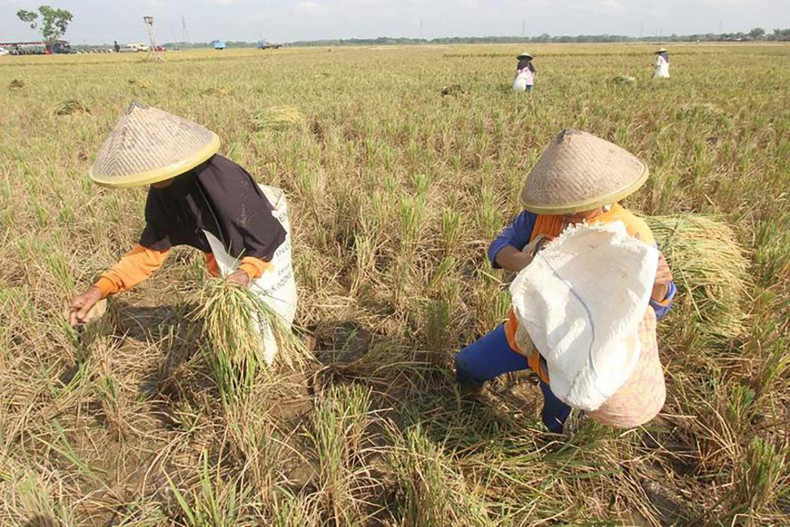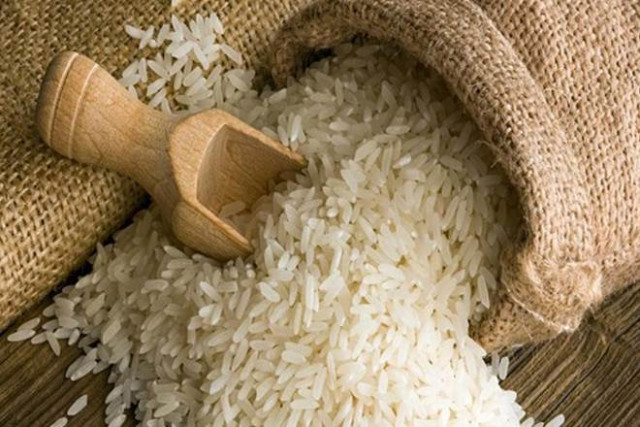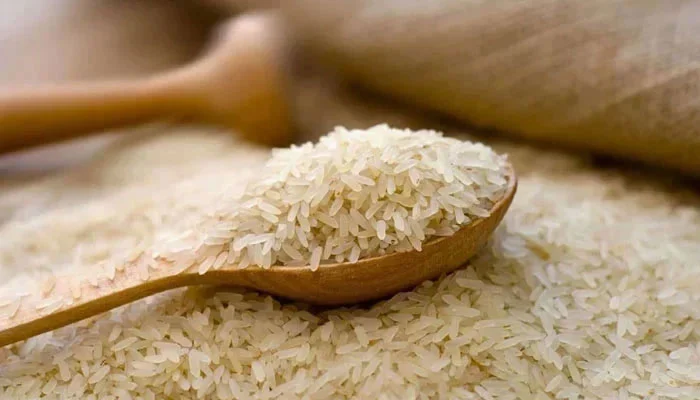Tags
Indonesia’s rice production disrupted by El Nino, raising inflation

Farmers harvest rice in Sukoharjo district in Central Java, Indonesia, on June 7, 2023. (Photo by Bram Selo/Xinhua)
JAKARTA: The extreme El Nino phenomenon in Indonesia has disrupted the rice production in the largest economy of Southeast Asia, which has resorted to imports to secure domestic stocks.
A prolonged drought resulting in lower rice production has pushed the rice price to soar, which could be directly felt by the public. Yanto, the owner of a warteg, a kind of food stall that sells various cheap meals, in East Jakarta, said that the profit of his business had been significantly declining since August.
As most of his customers were lower class people, he said he could not increase the selling prices. He eventually chose to reduce the portion of rice he served to customers.
“I have many customers because I sell cheap food. If I raise the prices, they will go. But even when I have reduced the portion, that does not really help. I lose profits by around 1 million rupiah (about 64 U.S. dollars) each month,” Yanto told Xinhua on Thursday.
Strong El Nino phenomenon typically means less rainfall for the thirsty crop. It affects Asia in particular, where rice is a staple food for most people.
Chairman of the Indonesian Rice Millers and Traders Association (Perpadi), Sutarto Alimoeso, said Wednesday to local media that grain supply at the end of this year was still far from the national milling needs. Inevitably, some mills have chosen to stop production until the supply would return to normal.
The rice scarcity period was also projected to be longer than usual. As a result, the high price of rice would be felt longer by the public, said Alimoeso.
Arief Prasetyo Adi, the acting agriculture minister as well as head of the National Food Agency (Bapanas), confirmed in mid-October that the impact of El Nino reduced Indonesia’s rice production by 1.2 million tons, from this year’s production target of 30 million tons.
The disturbed rice production also contributed to the rising inflation rate. According to Statistics Indonesia (BPS), the consumer price index was recorded at 2.56 percent year-on-year in October, up slightly compared to the previous month of 2.28 percent, due to raised prices of necessities such as rice.
“Rice was the biggest contributor to inflation from August to October,” said Pudji Ismartini, deputy for distribution and services statistics of BPS, at a press conference, adding that El Nino triggered a long drought, resulting in lower rice production.
Experts estimated that rice would be the main determining factor for overall inflation in 2023, as the impact of El Nino will still be felt until the first months of next year even though Indonesia has started to enter the rainy season.
According to the statement made by Minister of Finance Sri Mulyani at a press conference in Jakarta last Wednesday, the government would distribute rice assistance and Direct Cash Assistance (BLT), in a move to maintain people’s purchasing power, price stability, and inflation rate.
The rice assistance is expected to be handed over to 21.3 million beneficiary families, ensuring 10 kilograms to each family, in December, with a total budget of 2.67 trillion rupiahs (about 171 million dollars).
The BLT will be channeled to 18.8 million beneficiary families, or 200,000 rupiahs (about 13 U.S. dollars) per family per month, from November to December with a total budget of 7,52 trillion rupiahs (about 482 million dollars).
In early October, President Joko Widodo said in a press statement that Indonesia needed to import another 1.5 million tons of rice while anticipating a poor harvest, in addition to the 2 million tons of rice the government had already assigned the State Logistics Agency (Bulog) to procure from overseas earlier this year.
“The rice stock currently controlled by Bulog is 1.45 million tons. With the additional import assignment from the government, the stock will be even stronger for distribution needs until next year in order to maintain rice price stability,” said Mokhamad Suyamto, director of supply chain and public services of Bulog, in a statement released on Thursday.
Furthermore, Suyamto added the agency would be willing to import rice from any country that is possible and meets all standard requirements.
“Currently we have contracts with several countries where rice production is still large, namely Thailand, Vietnam, Pakistan and Myanmar. We will also talk with business partners of India, Cambodia, and other possible countries,” he said.
https://www.bangkokpost.com/business/general/2678556Published Date: November 5, 2023





